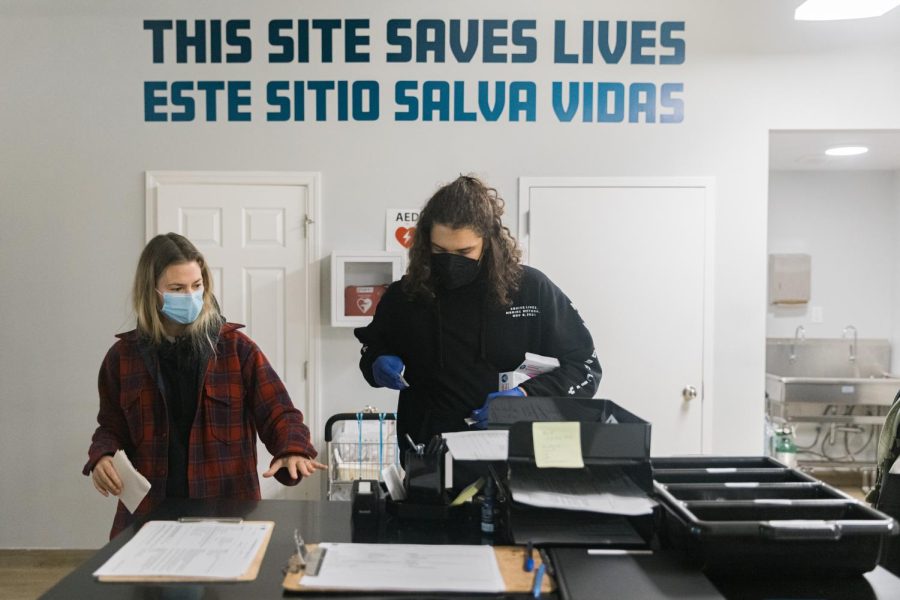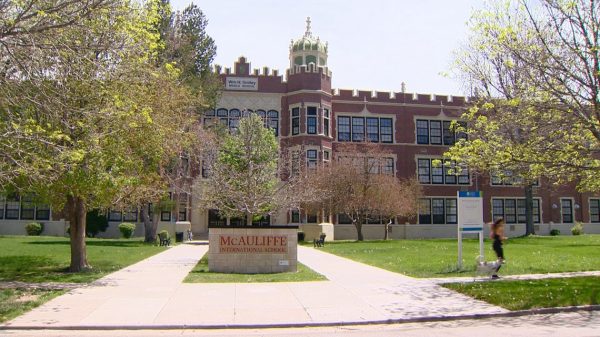Overdose Prevention Centers
May 1, 2023
What is an Overdose Prevention Center?
An Overdose Prevention Center (OPC) is, simply put, a building in which people can consume pre-obtained drugs in a controlled, sanctioned, and safe space. They help fight against overdose deaths and are proven to stop fatal overdoses, and as studies show, death by overdose is quite common. A study based in New York City found that the first opening of four OPCs saved up to 130 lives and saved $7 million in direct health care costs per year, and within 30 years of operation, no person has died due to overdose. The facility staff is present to provide sterile injection supplies, administer first aid, monitor overdose, and help prevent overdose by intervening as soon as overdose symptoms appear. This is life-saving because the onset of overdose is rapid and waiting for an ambulance could mean death or permanent brain damage due to a lack of oxygen. Participants have access to sterile consumption equipment and tools to check a supply for the presence of fentanyl. In addition, participants can receive healthcare, counseling, and referrals to health and society services, including drug treatment, and reduce injuries and injection-related illnesses.
Overdose Prevention Centers in New York City
In 2021, New York City began offering the first government-approved supervised drug injection sites on November 29, 2021. Mayor Bel de Blasio backs the program as part of the city’s ham reduction strategy and is designed to prevent death by overdose. Dr. Dave Choski, a New York City health commissioner, said arrangements had been made with the New York Police Department and other law enforcement so that people with substance use disorders or addiction could use the sites without fear of arrest. The two centers are in Manhattan and are operated by a nonprofit group called OnPoint NYC. Two organizations formed OnPoint focused on harm reduction causes. They later tweeted, “Being the first OCP site in the U.S. is an honor and incredible step forward in ending the opioid crisis.” Similar sites in Australia and Canada have been proven successful at preventing death by overdose, reducing drug use in public, and promoting safer injection practices that reduce the spread of diseases like HIV/AIDS, and hepatitis. Drug War-era Policies and legal challenges have delayed the creation of the OPCs, and in January 2021 a panel of federal judges blocked the creation of OPCs in Philadelphia. “[T]he opioid crisis may call for innovative solutions…[b]ut local innovations may not break the law.” In the months following that ruling, drug overdose deaths continued to surge, averaging about 120,000 deaths for Americans in a single 12-month period for the first time, according to the Centers for Disease Control and Prevention. Earlier that month, the Biden administration declined the endorsement of OPCs.
Overdose Prevention Center Authorization
In Colorado, the Overdose Prevention Bill has not officially been passed but has made it through two of the steps it needs to pass. On Feb 15, 2023, the bill was introduced, its sponsors were Elisabeth Epps of Denver and Jenny Wilford as well as senators Kevin Priola of Henderson and Julie Gonzalaz of Denver and passed in the House on Mar 11, 2023. The bill specifies that a city may authorize the operation of an Overdose Prevention Center within the city’s jurisdiction for the purpose of saving the lives of persons at risk of preventable overdoses. It passed through a full House on the second reading after being debated for hours overnight and officially passed the House floor on the third reading. The measure doesn’t mandate that cities will have to open overdose prevention centers but gives them the option to open them without consequences. The bill has no funding attached to it. There have been previous attempts to introduce Overdose Prevention Centers in Denver that have been going on since 2018 but never made it through. Sometimes, people would claim it was, “illegal under federal law” which halted the possibilities of these sites in Denver. According to the Denver Post, a spokesperson for Governor Jared Polis said he “would be deeply concerned with any approach that would contribute to more drug use and lawlessness.” Many other critics share this concern, however, it isn’t logical, as shown in other data, such as medical reports. In fact, one medical report states that most, if not all, Overdose Prevention Centers based in Australia, Europe, and Canada did not link any increased crime or drug use to the center’s operation.
Sources:
https://duclarion.com/2023/03/heres-what-proposed-bill-1202-could-mean-for-denver-opioid-epidemic/
https://www.npr.org/2021/11/30/1054921116/illegal-drug-injection-sites-nyc
https://leg.colorado.gov/sites/default/files/documents/2023A/bills/2023a_1202_ren.pdf
https://leg.colorado.gov/bills/hb23-1202
https://jamanetwork.com/journals/jamanetworkopen/fullarticle/2794326
https://www.statnews.com/2021/09/29/overdose-prevention-sites-save-lives-promote-recovery/
https://magazine.jhsph.edu/2019/5-things-know-about-overdose-prevention-sites
https://fastdemocracy.com/bill-search/co/2023A/bills/COB00005556/










